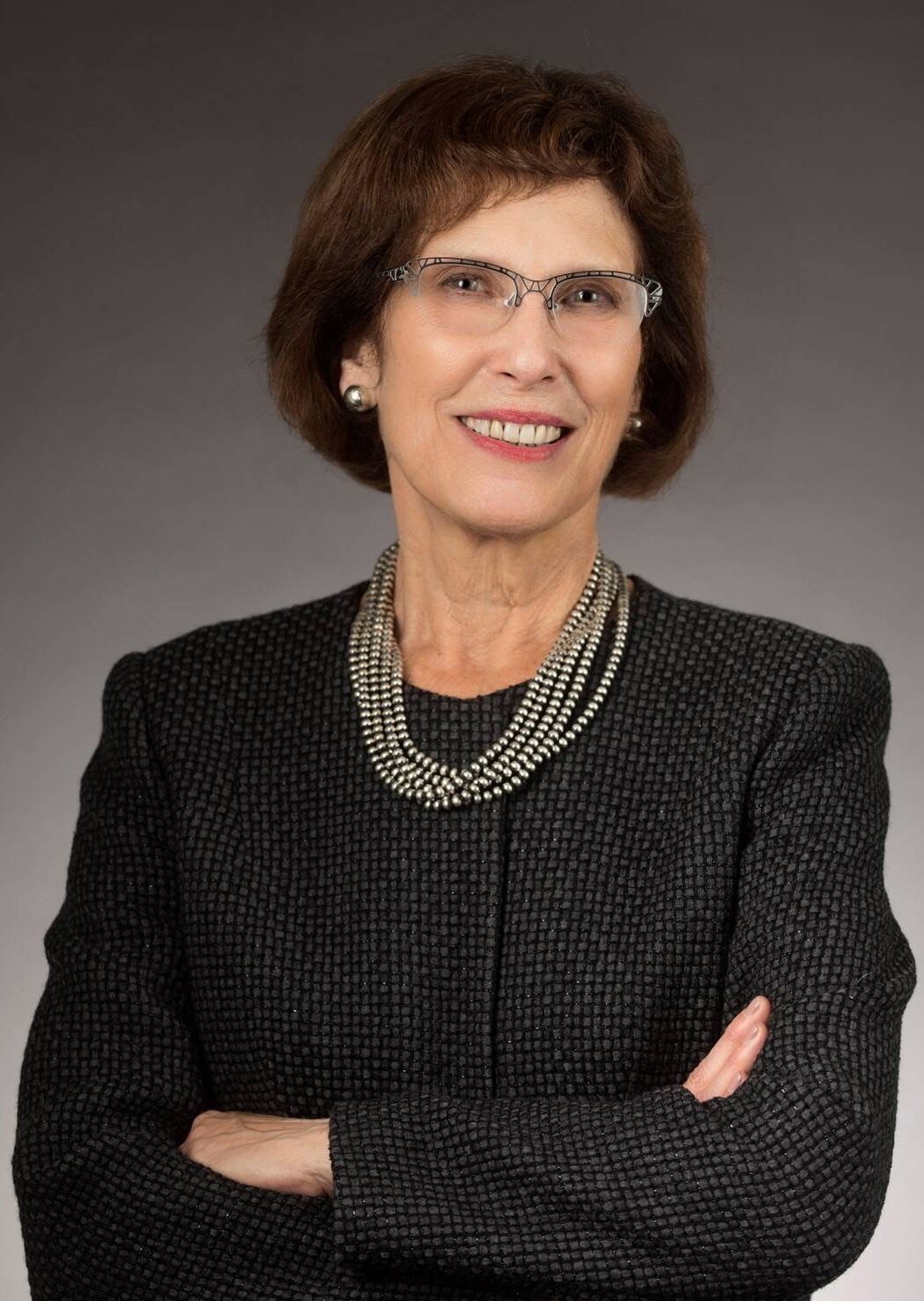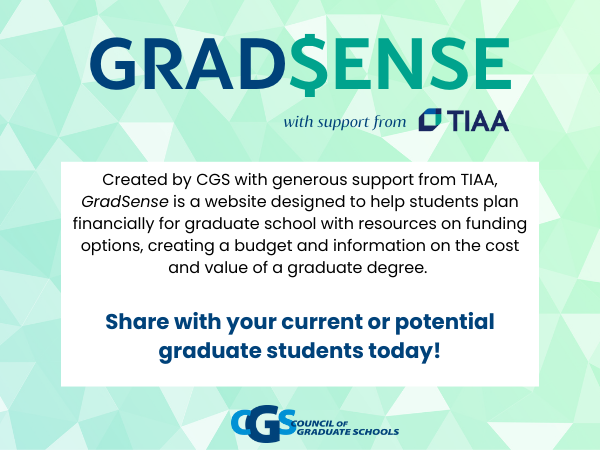A Message from Suzanne: Optimizing the Value of Graduate Education for Students and Communities
It has been a privilege of a lifetime to serve as the CGS president. Our students are our mission, and it is their curiosity, dedication, energy and determination to advance knowledge and make the world a better place that motivates me, and I know all of you, as well.
 For this reason, we must address the central challenge that our country faces today– how to use finite resources to optimize the balance between access, affordability, program quality and student success. That is why CGS launched the Cost of Graduate Education Task Force back in the fall of 2023. I am proud to announce the release of the report this week.
For this reason, we must address the central challenge that our country faces today– how to use finite resources to optimize the balance between access, affordability, program quality and student success. That is why CGS launched the Cost of Graduate Education Task Force back in the fall of 2023. I am proud to announce the release of the report this week.
The taskforce met multiple times over the course of last year, and our report and accompanying toolkit build on the extensive experience of taskforce members, who, as graduate education leaders, are working daily to address these issues. The taskforce also relied on the expertise of a diverse group of CGS members and other outside experts.
The work of the taskforce was grounded in the vision of providing affordable access to the high-quality graduate education that our students deserve and that our nation needs. The vision, in turn, rests on three core values.
- Student-Centered Education: Graduate programs succeed when they provide learning experiences and opportunities that align with students’ academic interests and career goals.
- Access and Inclusion: The quality of a graduate program depends upon the voices and inclusion of students from all backgrounds and perspectives.
- Transparency: Graduate programs have the responsibility to provide current and prospective students with readily available, clear information about costs, career pathways, and other less tangible but no less important outcomes of graduate education.
With these values in mind, the taskforce created an action agenda to achieve our goals of developing a research and policy agenda and a call to action, understanding the drivers of educational costs and exploring cost containment strategies, understanding the revenue streams that support graduate education, and lastly, highlighting best practices in making graduate program costs and career outcomes transparent to students.
I am proud of the work this taskforce has completed at this critical time. Any factor or trend that threatens the quality of the graduate enterprise undermines our capacity – as communities and as a nation – to develop the knowledge and cutting-edge technologies that will make business and government more efficient and effective, keep U.S. citizens safe from both natural and human-caused disasters, and improve the quality of life for all.
As an organization, CGS is committed to helping members effectively steward the resources necessary to support access and success in graduate education. I urge all graduate education leaders to use this report to advocate for cost-effective practices on your campus and to collaborate with policymakers, funders, and employers to develop practices that support graduate student success. Together, we can continue to optimize and communicate the value of graduate education to our state and national workforce.
As I pass the baton to our next leader, Chevelle Newsome, I know CGS will continue to be a leader on complex issues in the higher education community during these turbulent times. Together, we can push back on policies that only sound effective and advocate for ones that will truly make a positive impact on our students and communities.
Sincerely,
Suzanne Ortega
CGS President

